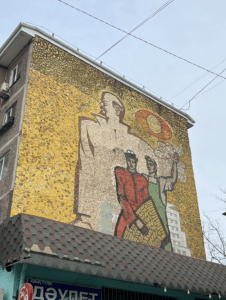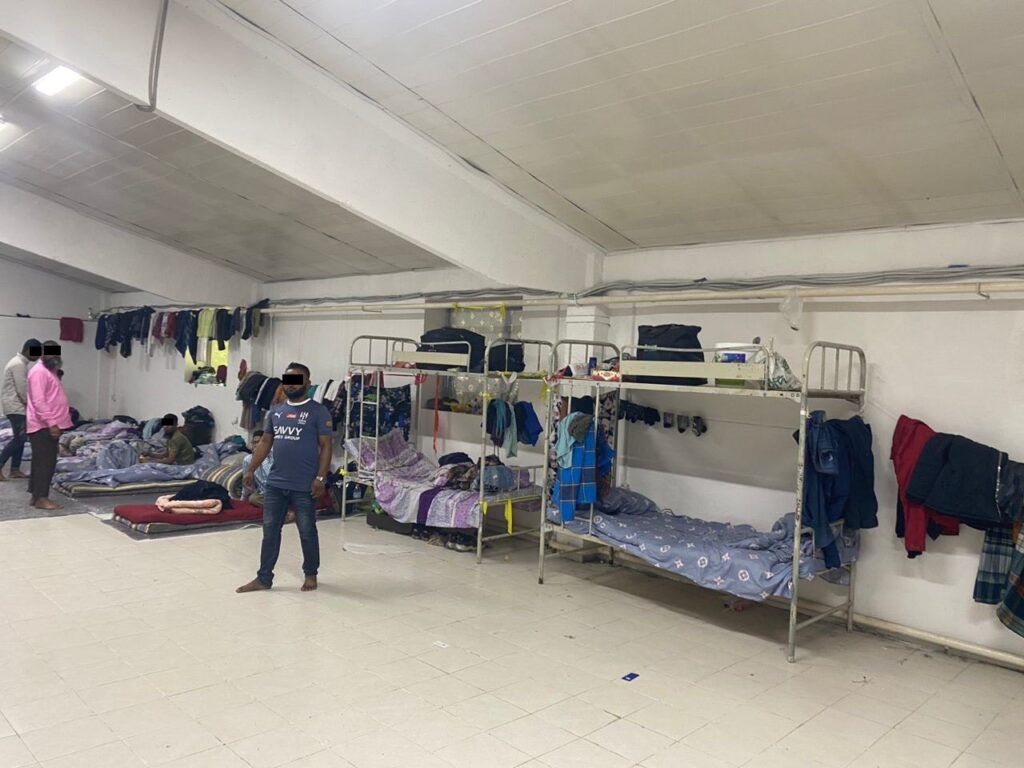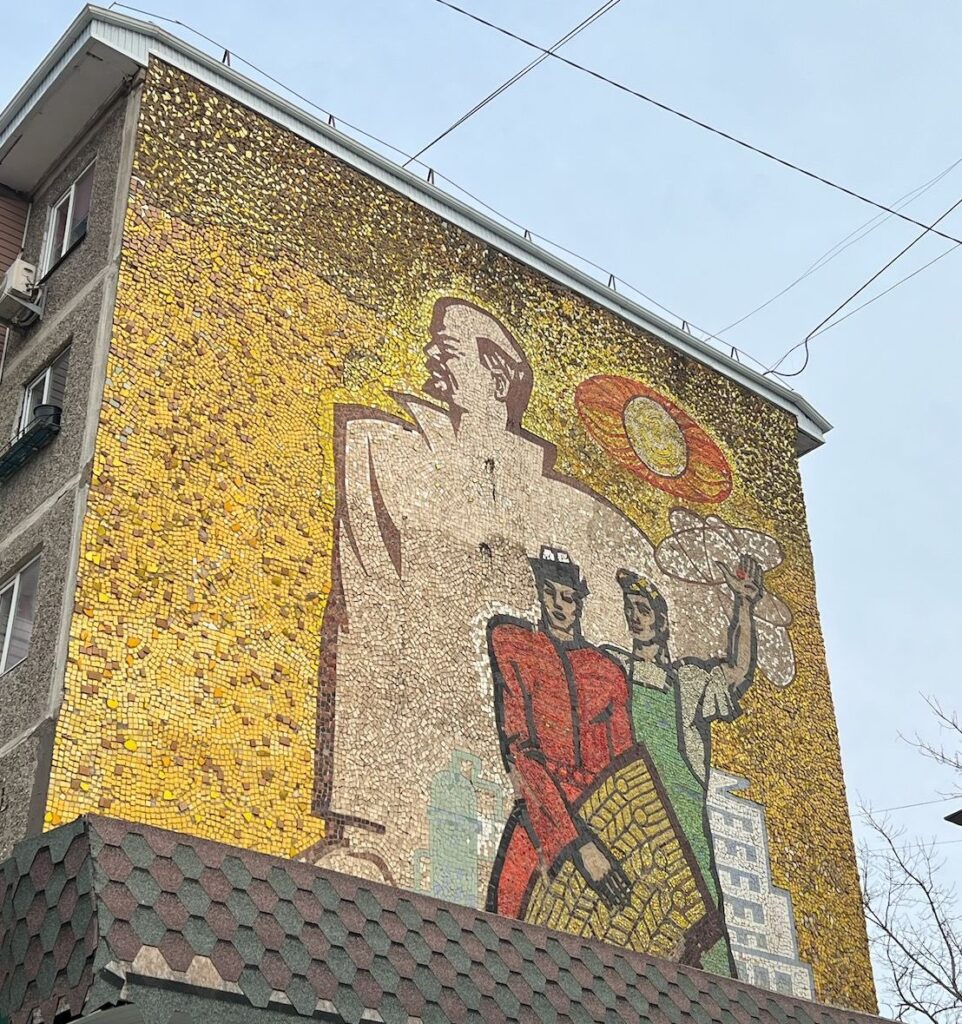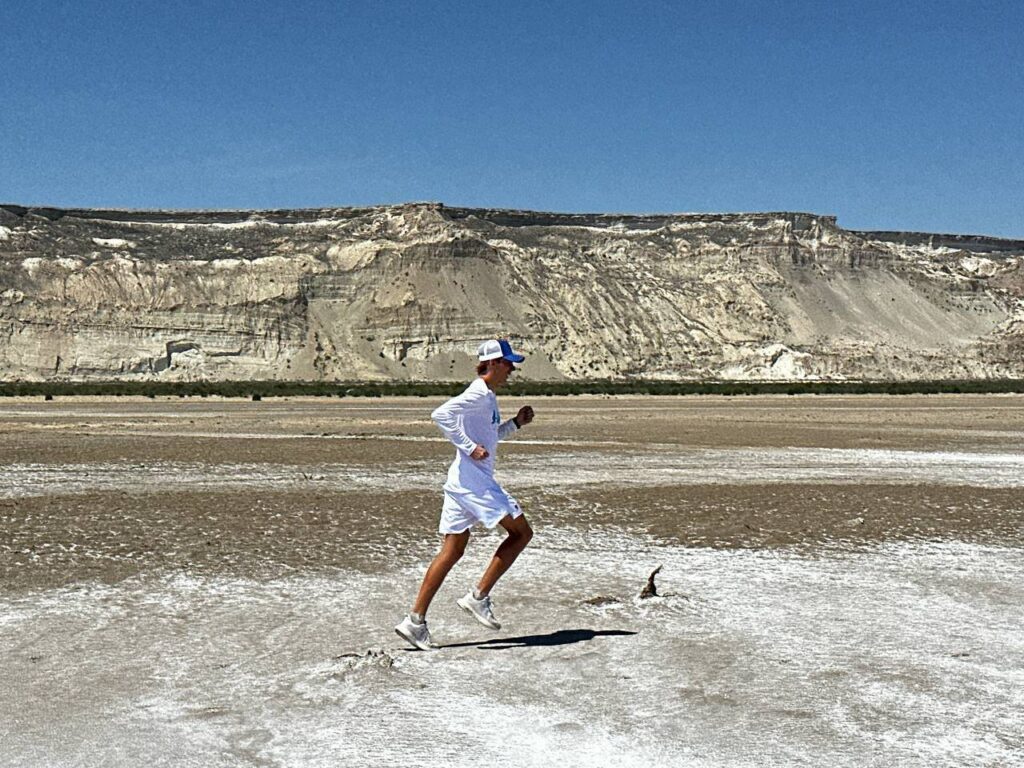When I received the email stating that I had received a fellowship to move to Almaty, Kazakhstan, to teach English for a year, I nearly fell out of my office chair in Midtown Manhattan. I worked in a market research company fresh out of college but knew I needed to do something more exciting in my early 20s. I began studying Russian when I was 13 years old. I’m unsure what the exact catalyst for my language endeavor was. Still, coupled with my Ukrainian ancestry, Putin’s annexation of Crimea, and the Sochi Olympics, it seemed like a no-brainer to me.
At this point in my life, I lived outside of Boston, Massachusetts, and began taking Russian classes on Saturdays in Brookline to satiate my desire to learn. After a year of classes, I enrolled in a Russian language immersion camp in Bemidji, Minnesota, for three summers. Following that, I received a grant from the US State Department to immerse myself in the culture for a summer in Narva, Estonia.
I knew where and what I wanted to study after graduating high school. I started my studies at the Elliott School of International Affairs at George Washington University in Washington, DC, declared a major in international affairs with a minor in Russian language and literature, and never looked back.
After graduation, my plans were in the air. I had been looking into opportunities to move to Russia or Ukraine, but this was now off the table due to the war. I worked in New York to get sorted, earn money, and start a new chapter of my life. At some point in April 2023, I received an email from a fellowship I had applied for in October 2022. I was initially placed on the waitlist, but I was notified that I had been accepted for the 2023-2024 cohort to relocate to Almaty, Kazakhstan.
“Oh my god,” I said at my desk. My coworker asked me what had happened. I said, “I’m moving to Kazakhstan. “Kazakhstan, like Borat’s Kazakhstan?” she asked.

Horses graze along the way to Furmanov Peak – Almaty, KZ
Preconceived notions
After the excitement had settled and my family and friends were informed of my plans, questions began to arise. “Why Kazakhstan?” “Is it safe there?” “Is that next to Serbia?” “Does the Taliban rule Kazakhstan?”
It is shocking how little most Americans know about the 9th largest country on the planet. Spanning two continents with nearly 20 million people, most Americans only know Kazakhstan from Sasha Baron Cohen’s 2006 film, Borat, and nothing more. When they hear the word “Kazakhstan,” they picture a backward and socially undeveloped post-communist country in which people commute by donkey carts, are misogynistic, and are openly antisemitic. While the depiction of Kazakh culture is inherently incorrect, the message is stuck, and the film has become synonymous with Kazakhstan in the American mind. However, most Americans probably can’t find it on the map.
I explained, “Kazakhstan is in Central Asia, and a lot of Russian is spoken there, so I selected Almaty. I’m also very interested in Central Asia; it’s such a unique part of the world, rich in language and culture, with incredibly kind people. I think learning Kazakh would also be very interesting.” “But why would you want to leave New York? You can practice Russian in Brooklyn,” my coworkers and friends said.
To be fair, while I knew more about Kazakhstan than the Average Joe, I couldn’t say I was fluent in many cultural aspects. I went on Amazon and bought “Apples are from Kazakhstan” to increase my baseline knowledge and read blogs to familiarize myself with Kazakh cuisine. As my departure date crept closer and closer, I made arrangements for my journey and became more excited.
I have always been a history geek, particularly a USSR history geek, so the chance to live in a former Soviet state for an extended time allows me to explore relics of the past and hear stories about a different way of life.
On August 24th, I boarded the plane from Frankfurt to Almaty and opened the page to a new chapter in my life. Upon landing in Almaty, I met my new coworker from Narxoz University, where I taught English this past year, got in the car, and headed into the city. I had spoken to my colleague over Zoom a couple of times to plan my arrival and whatnot, and it felt good to finally meet in person and put a friendly face to the name.

Uzbek plov – Bukhara, UZ
Work and play
This past year, I taught English at Narxoz (pronounced Nar-hoz) University through the Princeton in Asia fellowship. It was the first year Narxoz was allocated fellows, and I was keen to make a good impression. I was assigned to teach two English classes: B2 Upper-Intermediate and C1 Public Speaking. I also assisted the international office, taught master classes on resume and cover letter writing, and connected with the student body. Now that the academic year is over, I appreciate my teachers and professors more than ever.

Entrance to Narxoz University – Almaty, KZ
Outside of work, I continued my Russian studies and began learning Kazakh. While my Kazakh is still limited, saying just a few words in Kazakh can put a huge smile on someone’s face. I have earned respect by demonstrating my commitment to learning their culture and language. Learning the languages spoken in the country is important. Otherwise, how does one get involved in the community?
My passion for interesting travel has taken me to unique places throughout the year. Within Kazakhstan, I have traveled to Karaganda, Temirtau, Astana, Shymkent, Turkestan, Balkhash, Konaev, and various villages and points of interest. Within the region, I have been to Tashkent, Samarkand, and Bukhara in Uzbekistan and Bishkek and Karakol in Kyrgyzstan. I am a big fan of Soviet mosaics, murals, and bus stops, and I am very grateful to have these opportunities to see such incredible places.

Mosaic from a different time – Shymkent, KZ
American Mindset
While the transition to life in Kazakhstan has not been too challenging, mainly because I speak Russian, many Americans would find some cultural differences and nuances contradictory to the American way of life. For one, following the rules. This is not to say that all Americans do not follow the rules, but the one example that has stood out to me is pedestrians adhering to traffic signs and wait times. In the US, it is common to see people jaywalking wherever and whenever, but in Almaty, people abide by the time limits and crossing patterns.
Another example of change I have noticed is the respect for other people, particularly older generations. If an older person enters the bus, a younger person is expected to give their seat to them without hesitation. I learned this hard during my first week here when a babushka whacked me with her umbrella to convey the message.
Another nugget of knowledge worth sharing is just how diverse Central Asia is. In Kazakhstan alone, there are 124 ethnic groups. Kazakhs, Uzbeks, Uyghurs, Tajiks, Ukrainians, Tatars, Russians, and Koreans are just a few that contribute to the diversity in Almaty. Lagman, a Uyghur noodle dish that resembles chow mein, has become a staple of my diet here. Plov, an Uzbek rice dish, has won me over, and I now have intense cravings for baursak, a fried Kazakh bread.

Driving in the mountains – Karakol, KYG
Lasting impressions
The past year in Almaty has been the experience of a lifetime; I am eternally grateful to everyone who has supported me throughout this journey. I have become comfortable in my new environment, explored, and taken risks that have paid off. Now that the fellowship has ended, I am continuing my stay in Central Asia and working with the Times of Central Asia. Storytelling has become a part of my life to share experiences with friends and family back home. Upon arrival, I began writing a blog, sharing stories and pictures of various adventures, and thoroughly enjoyed writing.
Central Asia is a unique place. Largely unknown by Americans, it serves as a beacon of adventure and excitement to me. Coupled with my longstanding study of Russia and interest in the region and its future, this year has been incredible. I have met some of the kindest people, learned about their lives, and discovered so much. I am excited to continue living in the region, seeing new places, and learning new things daily.
Henry Kuvin is an English teacher at Narxoz University, and an editor at The Times of Central Asia














